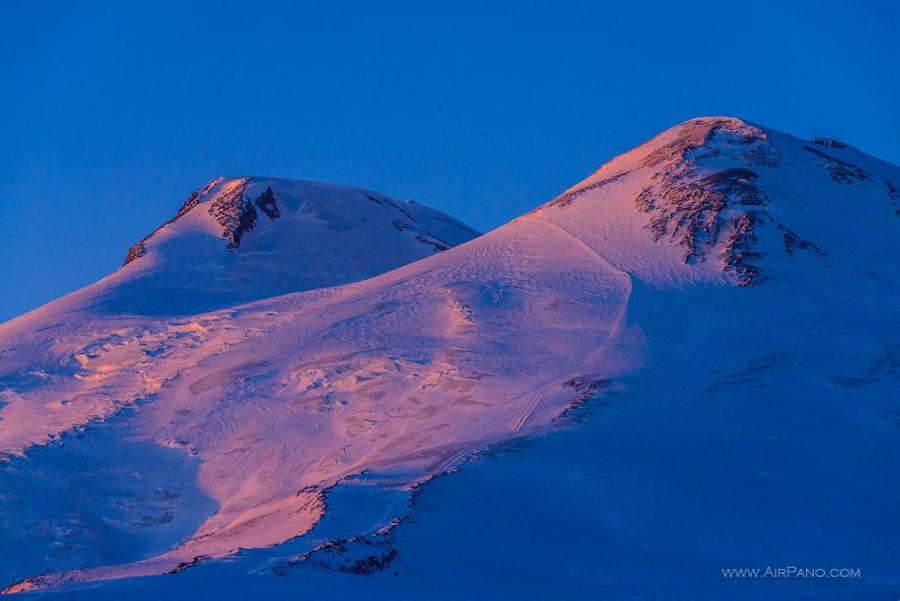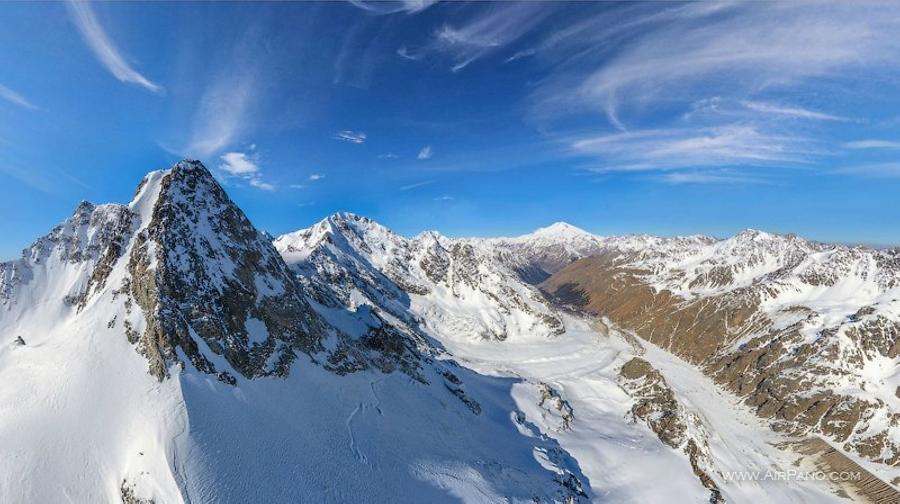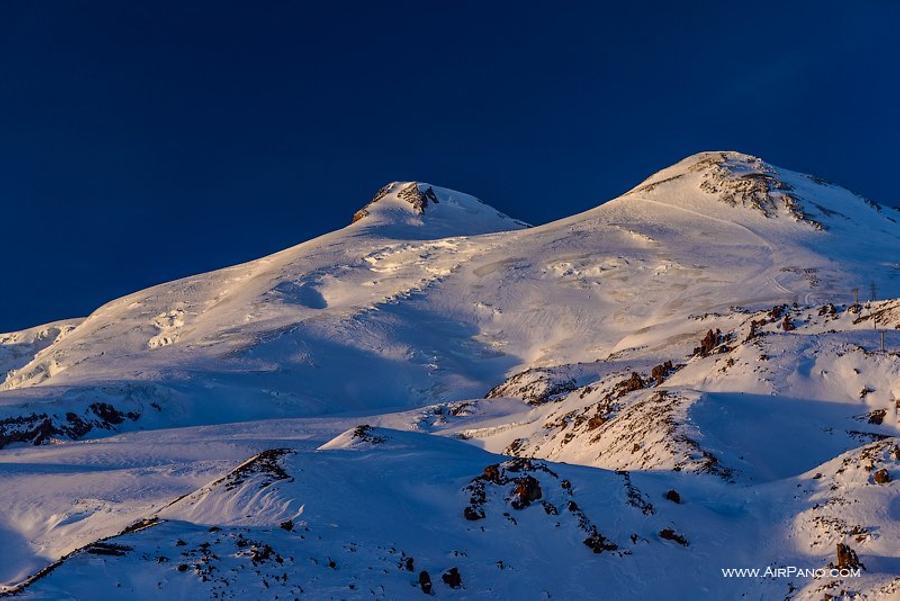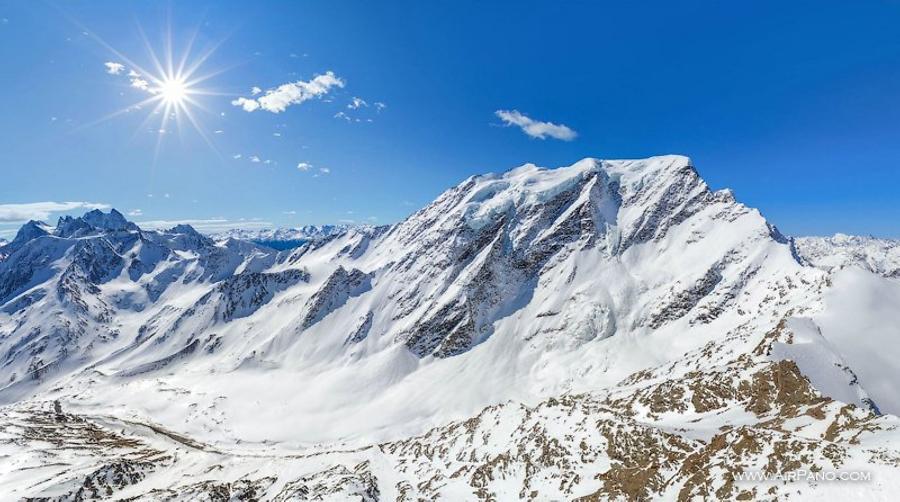Mount Elbrus#
Photo by Ivan Roslyakov,
member of the AirPano Team that is a member of the global-geography Consortium.
20 May 2014
with kind permission of AirPano
Mount Elbrus, the highest peak of Russia, is located north of the Caucasus Mountain Range, on the border of Kabardino-Balkaria and Karachay-Cherkessia of Russia. The twin-peak mountain (5,642-meter and 5,621-meter summits) can also be considered the highest peak in Europe as it is still rather uncertain where the border between Europe and Asia lies exactly. 4,810-meter-high Mont Blanc would be the only competitor for this title, as it is undoubtedly located in Europe.

The last eruption of Mt. Elbrus took place around 50 AC. However, today Mt. Elbrus is not a dormant volcano, but a sleeping one. Considerably high volcanic activity is being recorded inside the mountain: hot lava heats water up to +60ºC, feeding mineral springs of the popular Caucasian spa towns of Pyatigorsk, Kislovodsk, and Mineral Waters.

In 1829, a Russian scientific expedition led by General Emmanuel made the first successful ascension to Mt. Elbrus in human history. A group of British mountaineers first climbed the western summit (the highest one) in 1874. A. V. Pastukhov, a Russian military cartographer, is considered the first person to successfully climb both summits (years 1890 and 1896). Pastukhov was also the one who mapped this area in detail.

Today, Mount Elbrus is one of the most popular destinations for climbing and mountain hiking. The Russian Emergencies Ministry uses the northern slope of Mt. Elbrus for its needs, and the southern slope has well-developed tourism and hospitality infrastructure. There are pendulums and chairlifts, the alpine hotel "Shelter of Eleven" located at 4,000 meters altitude, and the "Saddleback" hotel located at 5,300 meters altitude. Strong winds and harsh weather conditions destroyed the" Saddleback" hotel many times, but it has always been rebuilt anew.

Over 10,000 people climb Mount Elbrus every year. Hundreds of mountaineers depart from the base camps during summer season, which is the most suitable time for ascending. Since Mt. Elbrus was "conquered" many years ago, new climbers come up with all sorts of artificial challenges to make their attempt special: snowboarding down the mountain, motorcycling, and even automobile ascending.

Like other mountains, Mt. Elbrus has taken its toll on its visitors — almost 10 human lives a year are lost. Accidents mostly happen due to strategic mistakes made during climbing. However, you don't have to risk your life or your comfort — you can "conquer" the legendary summits of Mount Elbrus with our virtual panoramas.